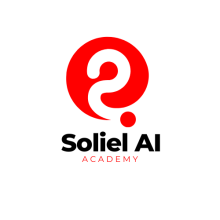Computer Vision
English
Last updated
Sat, 13-Sep-2025
This course offers a fundamental exploration into the field of Computer Vision, the science of enabling machines to see, interpret, and understand the visual world. We will begin by understanding how images are represented and manipulated, then move to classic techniques for extracting meaningful features. The curriculum progresses to core tasks like object detection and recognition, and culminates with an in-depth look at how deep learning, particularly Convolutional Neural Networks (CNNs), has revolutionized the field. Students will gain a solid foundation in both the theory and application of modern computer vision.

Soliel AI Academy is a leading online learning platform dedicated to providing comprehensive education in Artificial Intelligence (AI) for individuals and organizations. We aim to equip learners with the knowledge and practical skills needed to thrive in the rapidly evolving AI landscape.